Report on Webinar: Foundations of AI - Unlocking the Power of Data, Algorithms, and Discovery held on 22nd October 2025
A webinar titled 'Foundations of AI: Unlocking the Power of Data, Algorithms, and Discovery' was recently conducted under the banner of PASTIC National Centre, Islamabad. I aimed at introducing participants from various disciplines to the foundational concepts of Artificial Intelligence (AI) and its growing relevance across all domains of science and research. We attracted around participants from multiple universities and research organizations from across the country. It reflects a strong interest in understanding how AI could serve as a tool for modern scientific discovery.
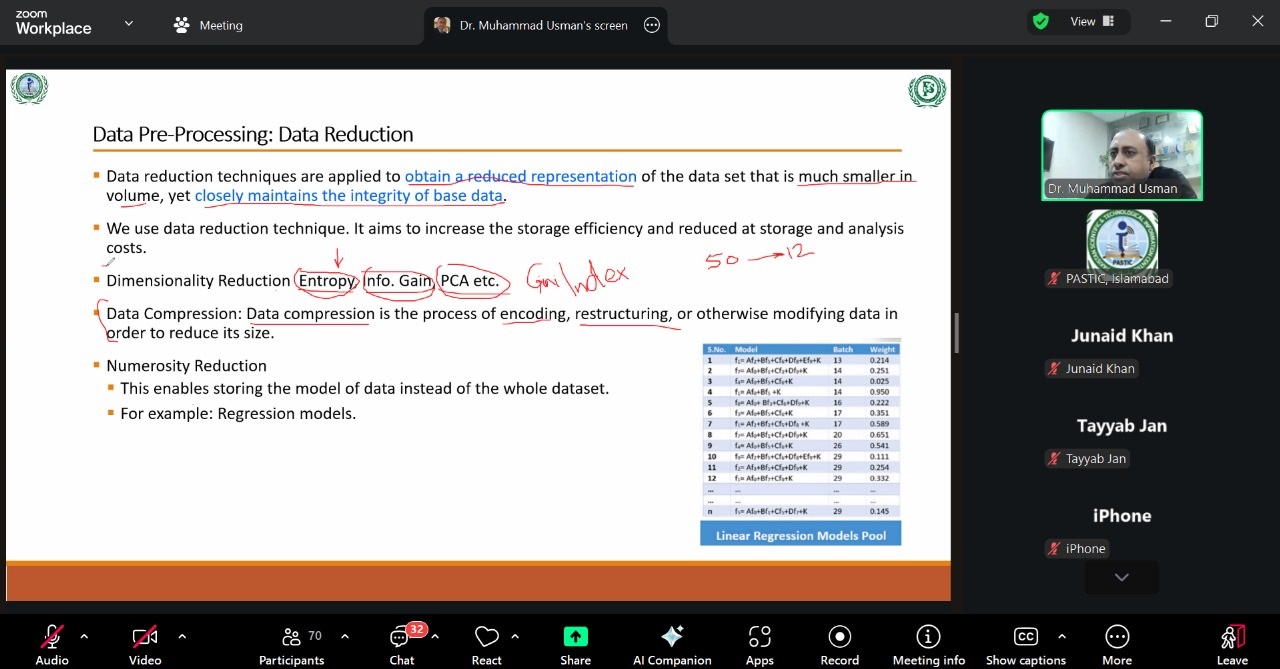
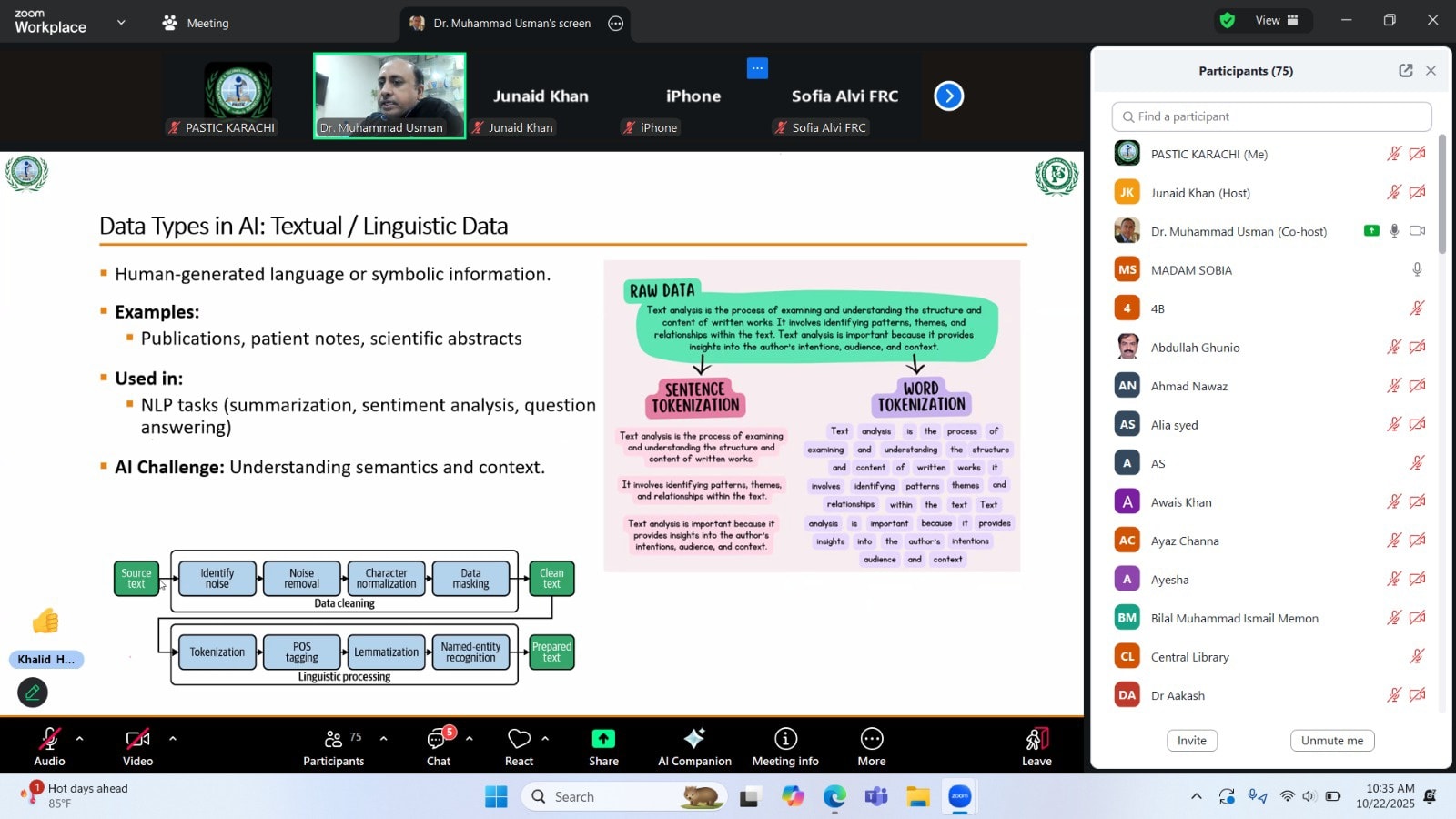
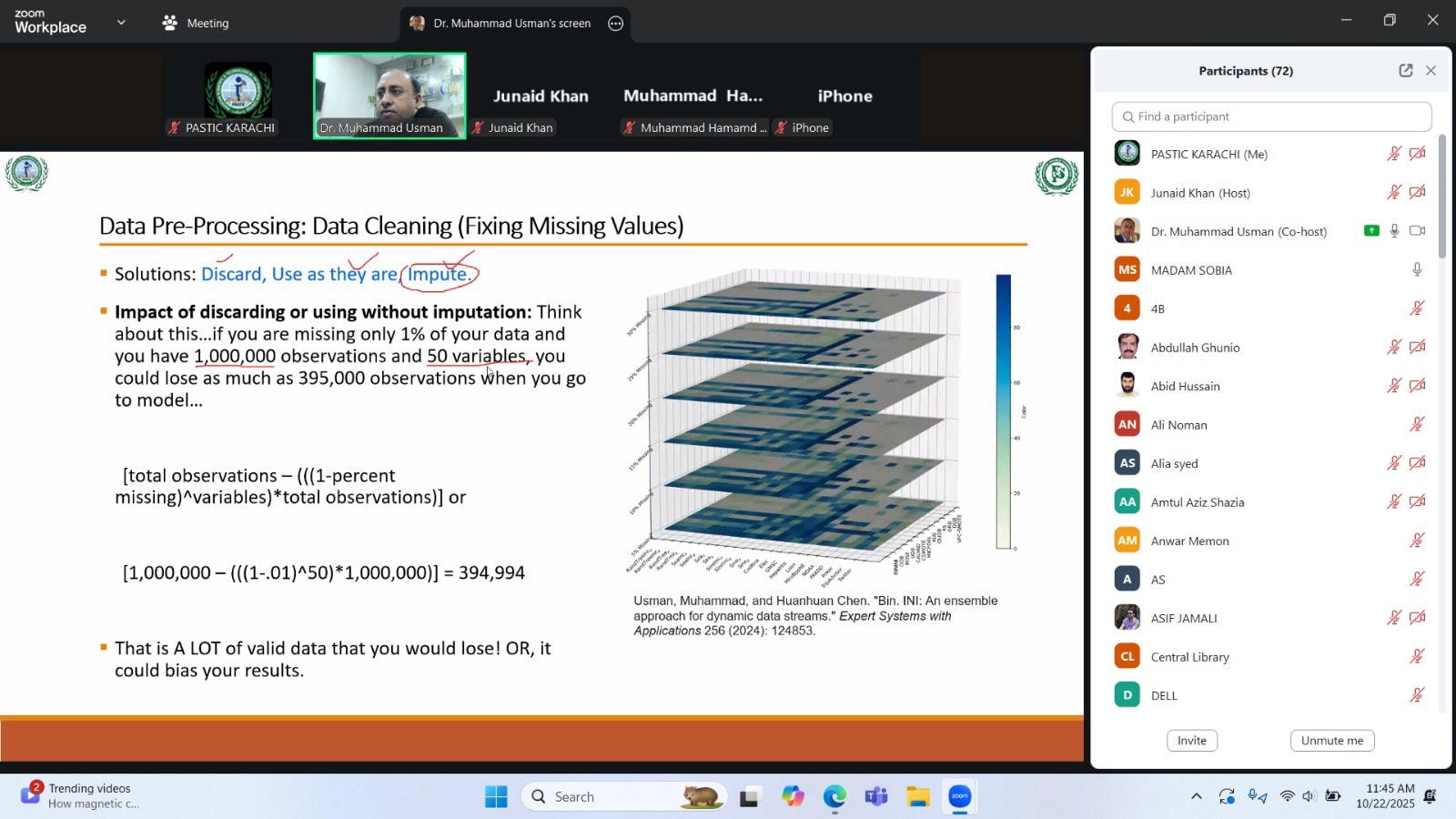
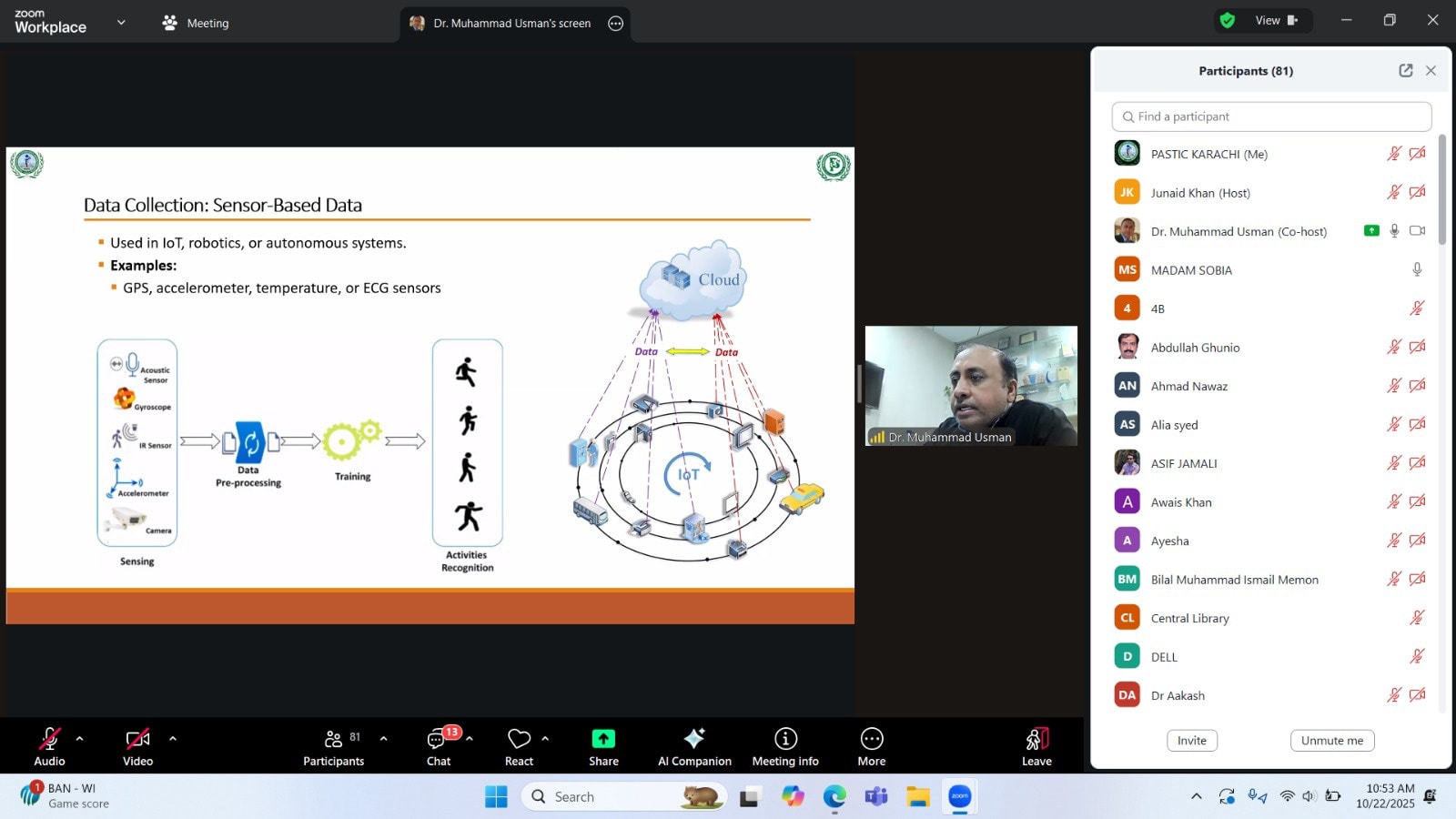
The webinar began with a discussion on how AI should be perceived as a multidisciplinary concept. We discussed how researchers from natural, social, and applied sciences can use AI to derive insights from their data. We shared examples from Pakistan's scientific and industrial landscape for illustratating potential application areas: e.g. agriculture, healthcare, environmental monitoring, and education, fields where AI can play a transformative role.
Moving further, participants were introduced to the importance of data, its types, sources, and growing scale in modern days. We highlighted how the exponential growth of data presents both opportunities and challenges for researchers. It was discussed that in the near future, AI techniques will increasingly be used to model big data across all disciplines. This forethought makes it essential for researchers to understand the possibilities and limitations of AI-based methods.
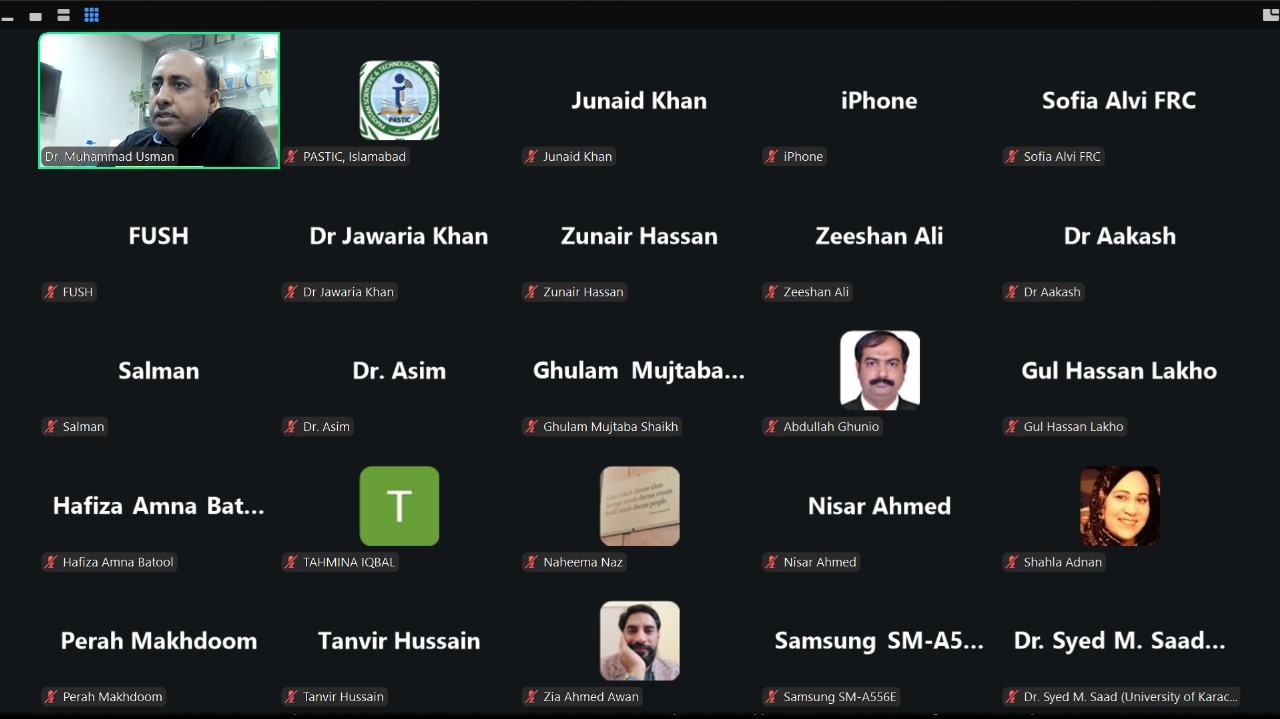
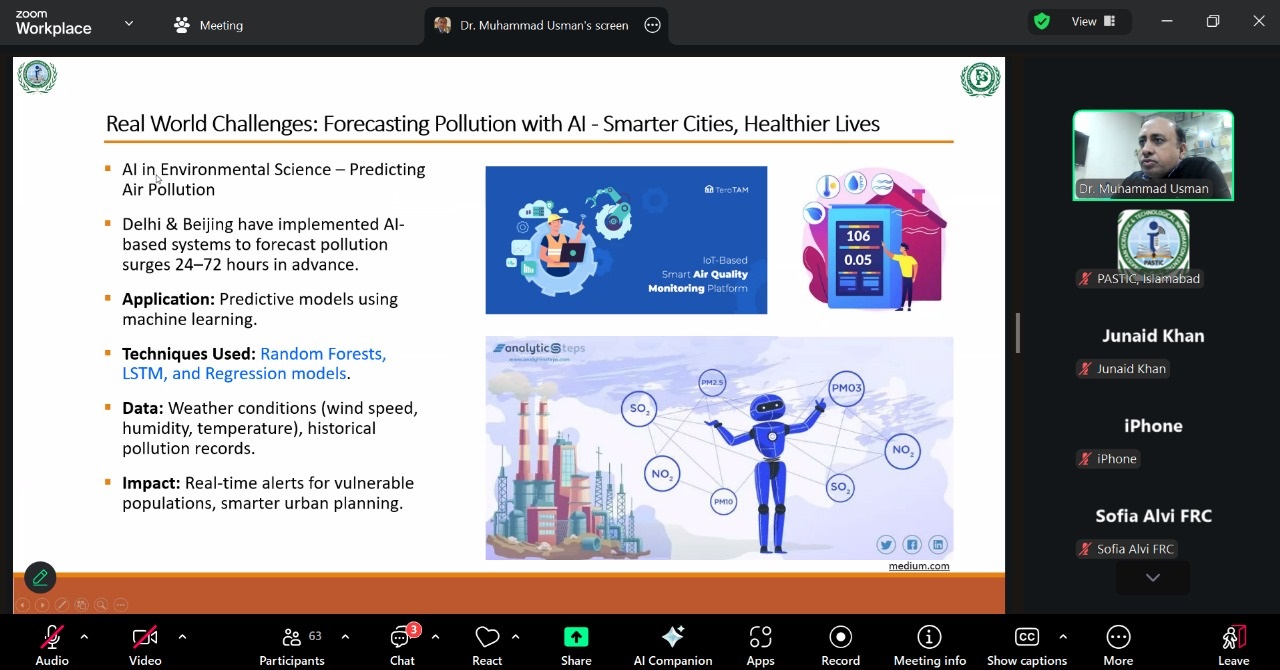
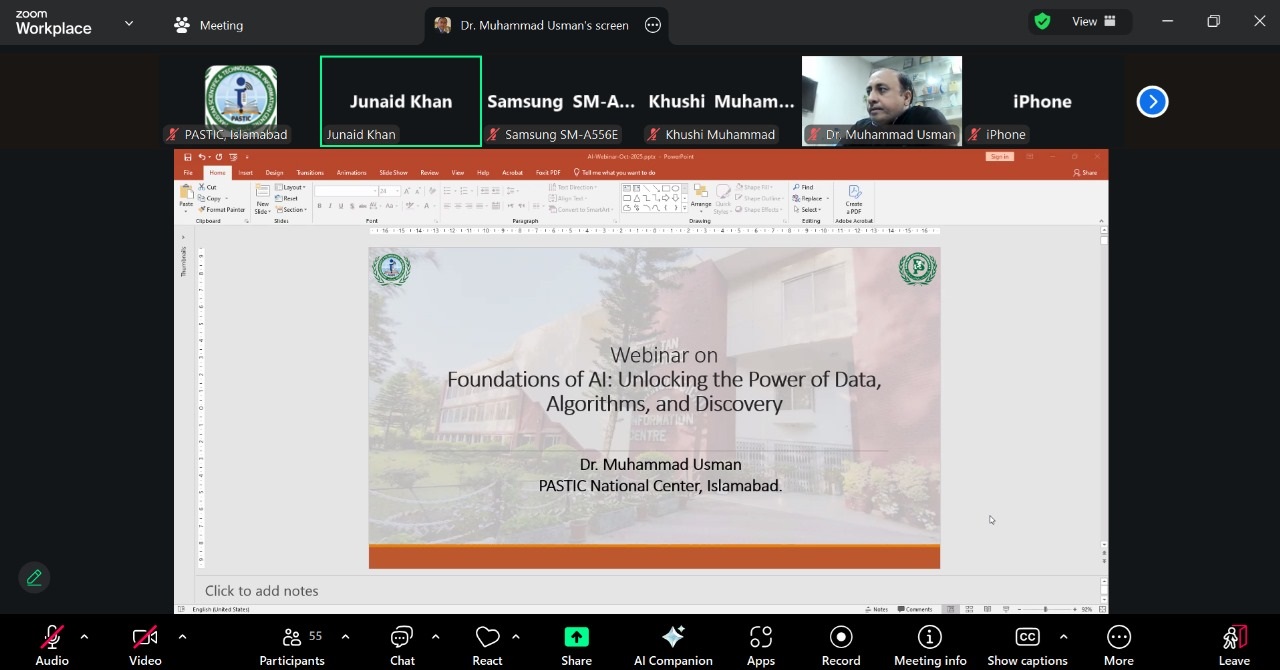
Next, we focused on discussing how AI builds models for tasks such as classification, clustering, and rule mining. Participants were guided through the model-building pipeline, showing its conceptual similarity to traditional data mining workflows, for example, including data preparation, algorithm selection, model training, and evaluation. This helped participants understand the logical progression from raw data to actionable insights and predictive models.
To strengthen practical understanding, a practical demonstration session using WEKA software was conducted. Although participants could not practice themselves, but a demonstrationw as given on various preprocessing tasks such as handling missing values, performing instance and attribute selection, and applying data normalization and standardization.
The session concluded with demonstrations of three major application areas, classification, clustering, and association rule mining (ARM), allowing participants to experience firsthand how AI tools can be applied to real-world datasets for analytical and predictive purposes.
Reach out to me through my email address if you need any assistance on AI-Modeling, or require talk PPTs.



